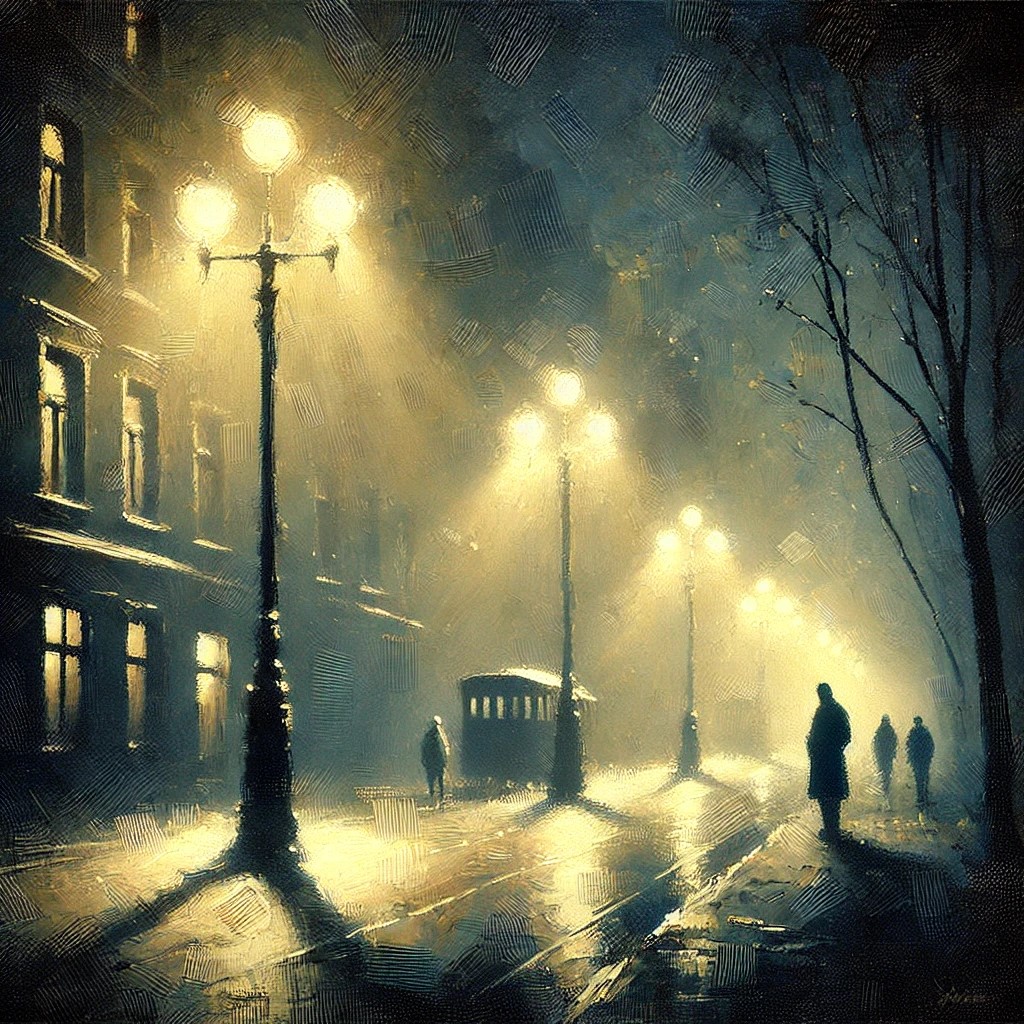At the edge of day
the sky-silk thickens,
stitched by unseen hands.
A silver-cloak unfurls,
pressing down
on roofs that hum
with the slow creak
of things forgotten.
Somewhere beneath
stone-swimmers drift
through endless dark,
turning beyond reach
and rest
and time.
A web of star-thread tightens –
light-weavers spinning nets
above empty hands
that move unseen
through shadowed fields.
The bones of day lie restless,
chiming distant songs
amongst the smouldering
facsimile of night.
This poem is inspired by recent research, which has found that excessive light pollution may increase risk of Alzheimer’s.
Alzheimer’s disease has become increasingly common, partly because people are living longer, but environmental factors are also thought to contribute to its development. One environmental factor gaining attention is exposure to artificial light at night. As modern life becomes more illuminated, there are growing concerns that constant exposure to outdoor nighttime light might affect our health, particularly in relation to neurodegenerative conditions such as Alzheimer’s disease.
This research investigated the link between outdoor nighttime light and the prevalence of Alzheimer’s disease in the United States by analysing satellite data on light intensity and health records from Medicare. The study found that higher levels of nighttime light exposure were associated with increased rates of Alzheimer’s disease. While other health conditions such as atrial fibrillation, diabetes, and high blood pressure had a stronger connection to Alzheimer’s, nighttime light was a more significant factor than conditions such as alcohol abuse or depression. Notably, for people under the age of 65, nighttime light exposure had a stronger association with Alzheimer’s disease than any other health factor. These findings suggest a potential link between nighttime light exposure and the rising number of Alzheimer’s cases, and they highlight the need for further research into this issue.
Discover more from The Poetry of Science
Subscribe to get the latest posts sent to your email.
